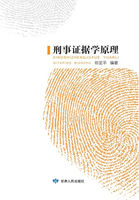"But the subject before us admits of further illustration from the example of Mr.Paine himself.In this country, where his opposition to the corruptions of government has raised him so many adversaries, and such a swarm of unprincipled hirelings have exerted themselves in blackening his character and in misrepresenting all the transactions and incidents of his life, will it not be a most difficult, nay an impossible task, for posterity, after a lapse of 1700 years, if such a wreck of modern literature as that of the ancient, should intervene, to identify the real circumstances, moral and civil, of the man? And will a true historian, such as the Evangelists, be credited at that future period against such a predominant incredulity, without large and mighty accessions of collateral attestation? And how transcendently extraordinary, I had almost said miraculous, will it be estimated by candid and reasonable minds, that a writer whose object was a melioration of condition to the common people, and their deliverance from oppression, poverty, wretchedness, to the numberless blessings of upright and equal government, should be reviled, persecuted, and burned in effigy, with every circumstance of insult and execration, by these very objects of his benevolent intentions, in every corner of the kingdom?" After the execution of Louis XVI., for whose life Paine pleaded so earnestly, -- while in England he was denounced as an accomplice in the deed, -- he devoted himself to the preparation of a Constitution, and also to gathering up his religious compositions and adding to them.This manuscript I suppose to have been prepared in what was variously known as White's Hotel or Philadelphia House, in Paris, No.7 Passage des Petits Peres.
This compilation of early and fresh manuscripts (if my theory be correct)was labelled, "The Age of Reason," and given for translation to Francois Lanthenas in March 1793.It is entered, in Qudrard (La France Literaire)under the year 1793, but with the title "L'Age de la Raison" instead of that which it bore in 1794, "Le Siecle de la Raison." The latter, printed "Au Burcau de l'imprimerie, rue du Theatre-Francais, No.4," is said to be by "Thomas Paine, Citoyen et cultivateur de I'Amerique septentrionale, secretaire du Congres du departement des affaires etrangeres pendant la guerre d'Amerique, et auteur des ouvrages intitules: LA SENS COMMUN et LES DROITS DE L'HOMME."When the Revolution was advancing to increasing terrors, Paine, unwilling to participate in the decrees of a Convention whose sole legal function was to frame a Constitution, retired to an old mansion and garden in the Faubourg St.Denis, No.63.Mr.J.G.Alger, whose researches in personal details connected with the Revolution are original and useful, recently showed me in the National Archives at Paris, some papers connected with the trial of Georgeit, Paine's landlord, by which it appears that the present No.63 is not, as I had supposed, the house in which Paine resided.Mr.
Alger accompanied me to the neighborhood, but we were not able to identify the house.The arrest of Georgeit is mentioned by Paine in his essay on "Forgetfulness" (Writings, iii., 319).When his trial came on one of the charges was that he had kept in his house "Paine and other Englishmen,"-- Paine being then in prison, -- but he (Georgeit) was acquitted of the paltry accusations brought against him by his Section, the "Faubourg du Nord." This Section took in the whole east side of the Faubourg St.Denis, whereas the present No.63 is on the west side.After Georgeit (or Georger)had been arrested, Paine was left alone in the large mansion (said by Rickman to have been once the hotel of Madame de Pompadour), and it would appear, by his account, that it was after the execution (October 31, 1793) Of his friends the Girondins, and political comrades, that he felt his end at hand, and set about his last literary bequest to the world, -- "The Age of Reason," -- in the state in which it has since appeared, as he is careful to say.There was every probability, during the months in which he wrote (November and December 1793) that he would be executed.His religious testament was prepared with the blade of the guillotine suspended over him, -- a fact which did not deter pious mythologists from portraying his death-bed remorse for having written the book.
In editing Part I.of "The Age of Reason," I follow closely the first edition, which was printed by Barrois in Paris from the manuscript, no doubt under the superintendence of Joel Barlow, to whom Paine, on his way to the Luxembourg, had confided it.Barlow was an American ex-clergyman, a speculator on whose career French archives cast an unfavorable light, and one cannot be certain that no liberties were taken with Paine's proofs.
I may repeat here what I have stated in the outset of my editorial work on Paine that my rule is to correct obvious misprints, and also any punctuation which seems to render the sense less clear.And to that I will now add that in following Paine's quotations from the Bible I have adopted the Plan now generally used in place of his occasionally too extended writing out of book, chapter, and verse.













